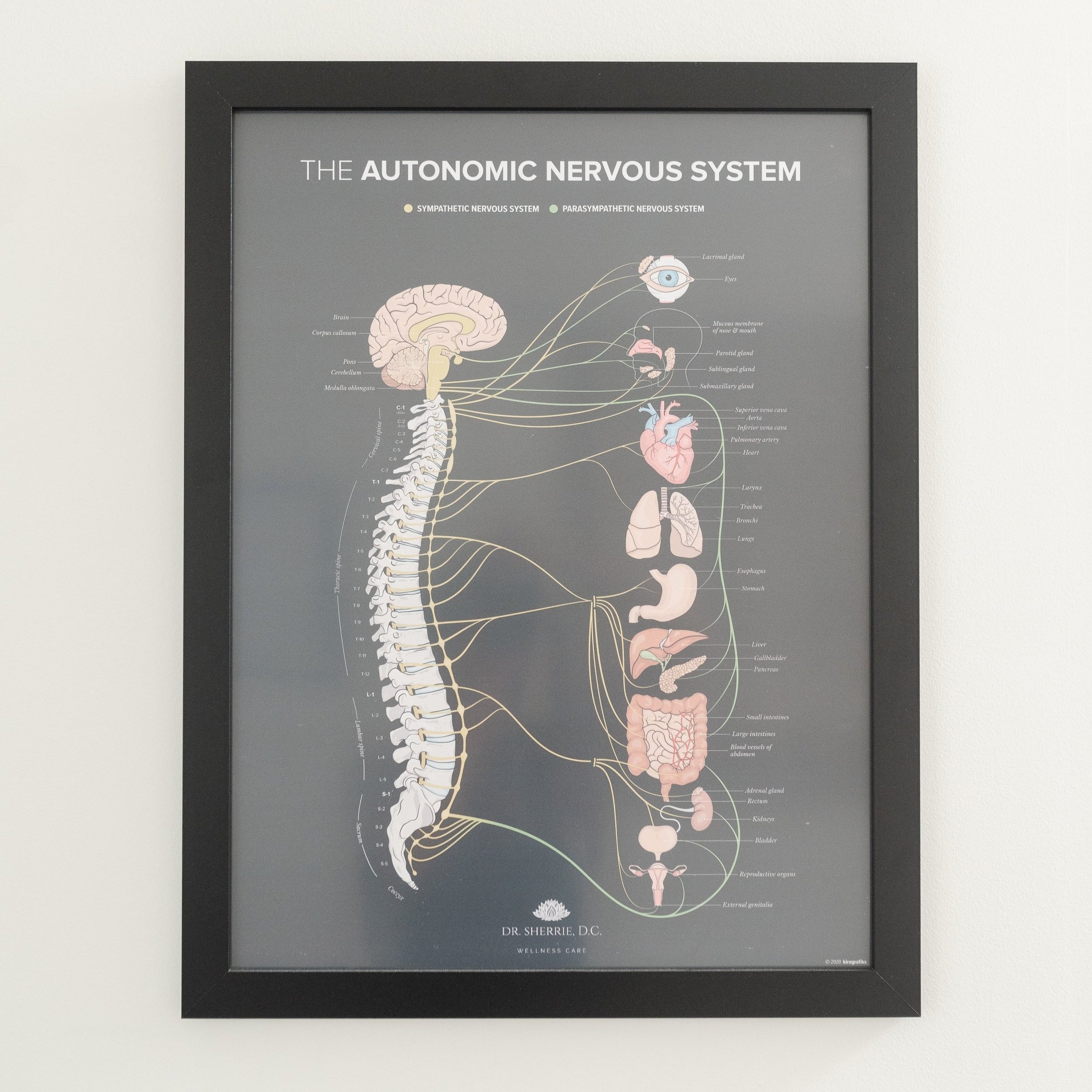How Chiropractic Care Addresses Chronic Stress and Emotional Health
Let's talk about it! I see and help with so many emotional-based concerns, such as chronic stress, anxiety, depression, OCD, PTSD, poor sleep habits, etc. So, what do any of these have to do with the nervous system and chiropractic?
Your body does NOT differentiate between physical stress, chemical stress, or emotional stress!
The body will respond in the E X A C T same way.
From the body's perspective, stress is stress, regardless of its source.
The body's response to stress is orchestrated by the autonomic nervous system (ANS), which consists of two branches: the sympathetic nervous system (SNS) and the parasympathetic nervous system (PNS). The SNS is responsible for the "fight-or-flight" response, activating the body to deal with perceived threats. On the other hand, the PNS promotes relaxation and restoration, allowing the body to recover and heal.
In times of chronic stress or emotional turmoil, the SNS can become overactivated, leading to imbalances in the body's stress response. Over time, these imbalances can contribute to a wide range of neuro-emotional health issues.
Chiropractic care, through its focus on the spine and nervous system, aims to restore balance and optimize the communication between the brain and the body.
Many times, our practice members will experience an emotional release and, soon after, notice full and easy breathing or the best night's sleep they have had in months. In my office, I focus on all THREE stressors and utilize gentle and specific therapies and adjustments to the body to bring balance back into the nervous system and expression back to your life.
Give us a call at Radiant Wellness in Franklin, TN if you’d like to experience how a holistic approach to bringing more calm to your days!

